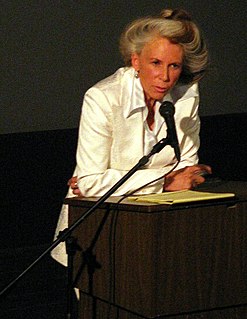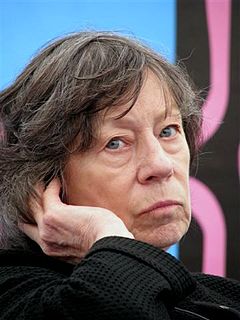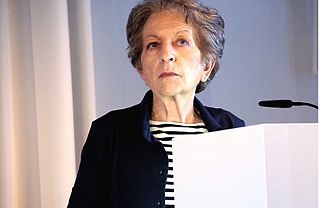A Quote by Catharine MacKinnon
Postmodernism is an academic theory, originating in academia with an academic elite, not in the world of women and men, where feminist theory is rooted.
Quote Topics
Related Quotes
One absolutely crucial change is that feminist film theory is today an academic subject to be studied and taught. "Visual Pleasure and Narrative Cinema" was a political intervention, primarily influenced by the Women's Liberation Movement and, in my specific case, a Women's Liberation study group, in which we read Freud and realised the usefulness of psychoanalytic theory for a feminist project.
If white American feminist theory need not deal with the differences between us, and the resulting difference in our oppressions, then how do you deal with the fact that the women who clean your houses and tend your children while you attend conferences on feminist theory are, for the most part, poor women and women of Color? What is the theory behind racist feminism?
I was frustrated with how academia tended to present feminist theory in disconnected or inaccessible ways. I wanted to try and bring a sociological feminist lens to the limited and limiting representations of women in the media and then share that with other young women of my generation. YouTube was the perfect medium.
Naturally my stories are about women - I'm a woman. I don't know what the term is for men who write mostly about men. I'm not always sure what is meant by "feminist." In the beginning I used to say, well, of course I'm a feminist. But if it means that I follow a kind of feminist theory, or know anything about it, then I'm not. I think I'm a feminist as far as thinking that the experience of women is important. That is really the basis of feminism.
Radical militant feminist believes that women of color and Black women in particular have written the cutting edge theory and really were the individuals who exploded feminist theory into the directions that has made it more powerful. So I see us as the leaders not just of Black people and Black women in terms of feminism but in terms of the movement as a whole.
Naturally, my stories are about women - I'm a woman. I don't know what the term is for men who write mostly about men. I'm not always sure what is meant by 'feminist.' In the beginning, I used to say, 'Well, of course I'm a feminist.' But if it means that I follow a kind of feminist theory, or know anything about it, then I'm not.
Academic writing you have to get right. Fiction you have to get plausible. And there's a world of difference. In a way, if someone says this didn't feel exactly right, I don't care. But that is not okay to do in academia - it's not about feeling. You want to establish a pretty solid case. So did this allow me to express things differently? Absolutely. Another thing I've been thinking about as an academic: our writing style is expository, and in fiction, withholding information matters quite a bit. Withholding things in academia - there's no place for that!
There's actually a wonderful quote from Stanley Fish, who is sometimes very polemical and with whom I don't always agree. He writes, "Freedom of speech is not an academic value. Accuracy of speech is an academic value; completeness of speech is an academic value; relevance of speech is an academic value. Each of these is directly related to the goal of academic inquiry: getting a matter of fact right."
There are two ways of forming an opinion. One is the scientific method; the other, the scholastic. To the scientific mind, experimental proof is all-important, and theory is merely a convenience in description, to be junked when it no longer fits. To the academic mind, authority is everything, and facts are junked when they do not fit theory.
Feminism as a movement for political and social equity is important, but feminism as an academic clique committed to eccentric doctrines about human nature is not. Eliminating discrimination against women is important, but believing that women and men are born with indistinguishable minds is not. Freedom of choice is important, but ensuring that women make up exactly 50 percent of all professions is not. And eliminating sexual assaults is important, but advancing the theory that rapists are doing their part in a vast male conspiracy is not.




































